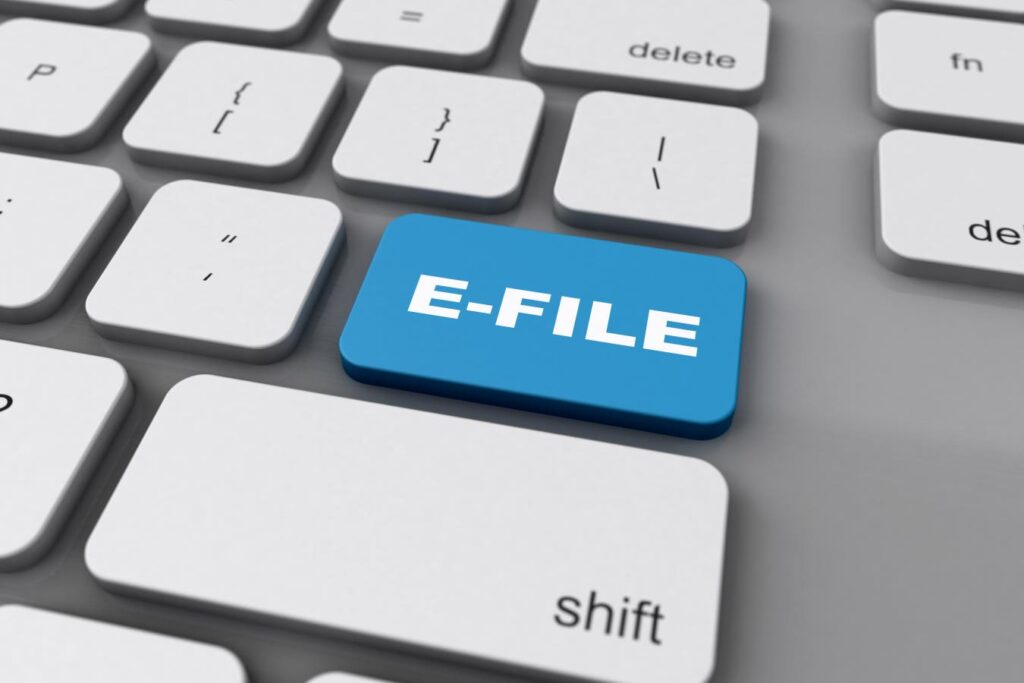The Federal Trade Commission (FTC) has finalized an order requiring tax return preparation company H&R Block to make changes for the 2025 tax filing season—and to pay $7 million to compensate consumers.
The Charges
The order came in response to a nearly year-long investigation. Last February, the FTC filed an administrative lawsuit against the tax prep company, alleging that H&R Block unfairly advertised its online tax filing products as free when many consumers could not file for free.
Among the allegations were charges that H&R Block failed to explain what its various tax products covered, such as which forms and schedules might be included in “free” products. That, the FTC claims, resulted in consumers spending time to complete their tax returns on products that were more expensive than they needed. When consumers then attempted to downgrade to a less expensive product, the FTC says that H&R Block hit them with a series of time-consuming obstacles, including contacting in-person customer service to request any downgrade and then deleting data entered in the program before the downgrade. Consumers who sought to upgrade, the FTC says, did not have the same challenges.
The Order
The order requires H&R Block to make it easier for consumers to downgrade products. By February 15, 2025, the company must allow consumers to downgrade products without contacting a real person—they can use a chatbot or other automated means.
By the 2026 tax filing season, H&R Block must stop deleting consumers’ previously entered information. Specifically, when a consumer downgrades back to the product they upgraded from, H&R Block must ensure that the consumer returns to the same point in the preparation process they were at when they initially started.
H&R Block must also disclose in its advertising either the percentage of taxpayers eligible to use any “free” products—or note that most taxpayers do not qualify.
As for the $7 million payment? H&R Block must pay over the funds to the FTC within 30 days of the Order. The money has been earmarked to compensate consumers and pay related expenses. To help the FTC with that process, H&R Block must also to turn over certain customer information to the agency.
To ensure compliance, H&R Block has to retain certain records, including those showing the revenues from the company’s DIY online products for up to five years. The company must also maintain records of all consumer complaints and refund requests related to the allegations made in the FTC complaint. Importantly, the company must also keep copies of its DIY advertising and marketing materials.
H&R Block’s Reaction
In a statement provided to Forbes, the company said about the matter, “H&R Block prides itself in providing consumers with quality online tax preparation products, which has never been an issue in this matter. Many of the changes in the settlement have either already been made or are in process. We are pleased to put this behind us so we can focus on serving our clients during the 2025 tax season.”
FTC Votes
The Commission voted unanimously to approve the final Order.
Commissioner Andrew Ferguson issued a statement about the vote and the charges. WhilIn the statement, Ferguson noted that he had “serious reservations” about the merits of Count III, which involved the marketing of H&R Block’s free version of its online tax preparation products (Counts I and II relate to H&R Block’s customer-service-contact requirements and data-wiping practices.).
Ferguson had hoped, he said in the statement, that the U.S. Court of Appeals for the Fifth Circuit would provide guidance for the agency in a different case involving a similar claim. That did not happen.
Other Case
The case Ferguson is referring to is Intuit v. Federal Trade Commission (FTC). In that case, Intuit Inc., the company that owns TurboTax, appealed an FTC administrative order that found it had misled customers by advertising its TurboTax software as free when the majority of users ultimately had to pay for services. (Sound familiar?) The FTC imposed a cease-and-desist order on the company that Intuit wants vacated because the administrative process infringes upon its right to be heard in court.
That challenge to the administrative process is a familiar cry—the Fifth Circuit also heard a challenge claiming that the FTC doesn’t have the authority to ban noncompete contracts.
(If you feel like the Fifth Circuit is making lots of news lately, you’re right. The recent legal maneuvers targeting the Corporate Transparency Act (CTA) also appealed to the Fifth Circuit, which initially granted the government’s request to stay the injunction. However, a separate Fifth Circuit panel vacated the stay, blocking enforcement. That matter is now at the Supreme Court.)
Other Options
Taxpayers who are seeking free tax products have other options. The IRS has programs, including DirectFile and Free File, that can benefit taxpayers.
Free File—available on the IRS Free File page on IRS.gov—allows taxpayers to choose from eight private-sector partners (1040Now, Drake (1040.com), ezTaxReturn.com, FileYourTaxes.com, On-Line Taxes, TaxAct, TaxHawk (FreeTaxUSA), and TaxSlayer. For 2025, ezTaxReturn.com will provide an IRS Free File product in Spanish.
These products are generally available for taxpayers with an Adjusted Gross Income (AGI) of $84,000 or less in 2024. Each IRS Free File trusted partner establishes its own eligibility criteria based on age, income, state residency and military status.
Taxpayers with an AGI above $84,000 can use the Free File Fillable Forms (FFFF) starting January 27, 2025. FFFF are electronic versions of IRS paper forms and are targeted to taxpayers who are comfortable preparing their own taxes using IRS instructions and publications.
Free File will open on Friday, January 10, 2025.
Read the full article here


